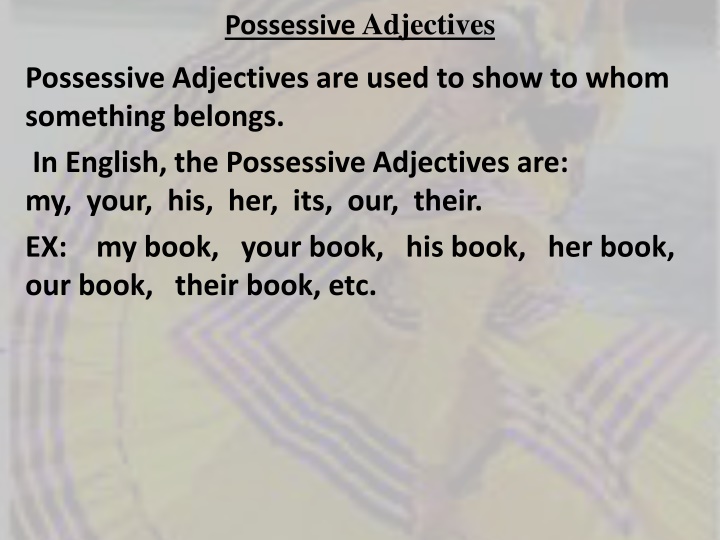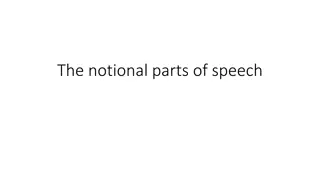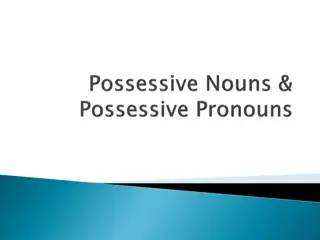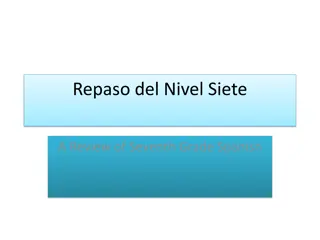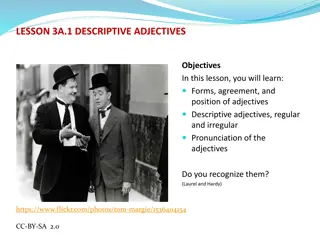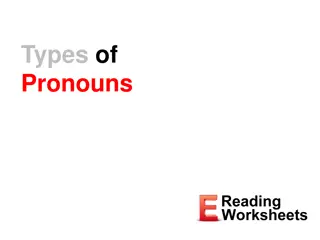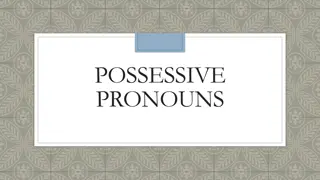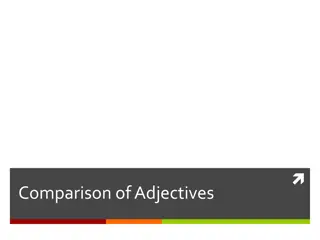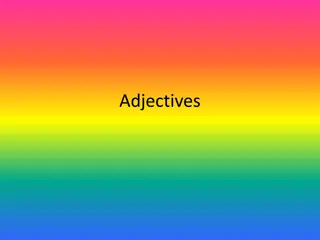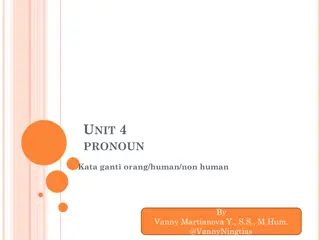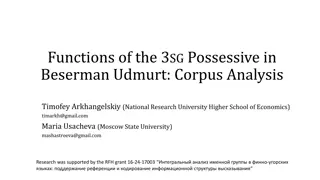Possessive Adjectives in English
Possessive adjectives in English, including my, your, his, her, its, our, and their, indicate ownership or relationship. By using these words correctly, you can clearly express possession in sentences.
Download Presentation

Please find below an Image/Link to download the presentation.
The content on the website is provided AS IS for your information and personal use only. It may not be sold, licensed, or shared on other websites without obtaining consent from the author.If you encounter any issues during the download, it is possible that the publisher has removed the file from their server.
You are allowed to download the files provided on this website for personal or commercial use, subject to the condition that they are used lawfully. All files are the property of their respective owners.
The content on the website is provided AS IS for your information and personal use only. It may not be sold, licensed, or shared on other websites without obtaining consent from the author.
E N D
Presentation Transcript
Possessive Adjectives Possessive Adjectives are used to show to whom something belongs. In English, the Possessive Adjectives are: my, your, his, her, its, our, their. EX: my book, your book, his book, her book, our book, their book, etc.
In Spanish the Possessive Adjectives are: my book mi libro our book **nuestro libro our house nuestra casa tu libro your book **vuestro libro su libro your house vuestra casa su libro their book su libro your [Uds]] book su your [t ] book his book her book its book su libro libro your [Ud] book su libro
Since these are adjectives, they must agree with the noun in number [singular / plural]. If the noun is singular [book], use the singular form of the Poss. Adj. as shown above.
If the noun is plural [books], you must use the plural form of the Possessive Adjective. The plural forms are made like any other word in Spanish. Since all the Possessive Adjectives end in a vowel, simply add s to make it plural:
my books mis libros our books nuestros libros our houses nuestras casas your books tus libros your books vuestros libros his books sus libros your houses vuestras casas q her books sus libros their books sus libros its books sus libros your [Uds] books sus your [Ud] books sus libros libros
